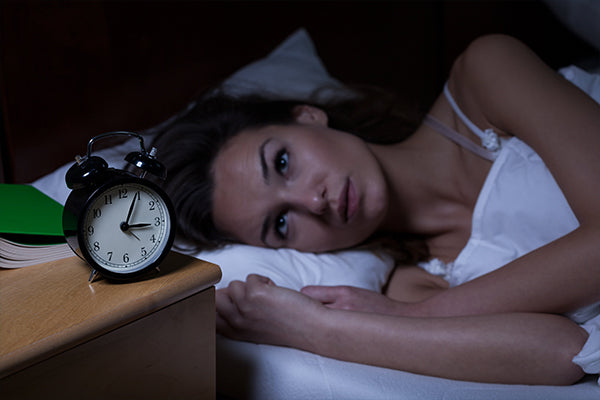Sleep is the cornerstone of our health and well-being. While we sleep, our bodies undergo essential biological processes that repair and strengthen everything from our organs to the tiniest cell, helping us function optimally daily. Sleep helps to build and repair cells, consolidate memories and information, regulate hormones and emotions, and restore energy, among others. However, up to 45% of the global population suffers from sleep disorders such as insomnia and sleep apnea, and this issue is more pronounced among people who suffer from dementia.
People with dementia often have a harder time falling and staying asleep, which can take a toll not only on their health but also on that of their loved ones. Here is what we know about sleep and dementia, and how to get dementia patients to sleep at night.

Dementia and Sleep
The relationship between dementia and sleep is a bidirectional and complex one, as dementia causes sleep disorders, and lack of proper sleep also leads to cognitive decline thus increasing the risk of dementia. Research is still on to fully understand how dementia affects sleep and vice versa. But what we do know is this: dementia causes damage to cells in the suprachiasmatic nucleus (SCN), the part of the brain that controls the circadian rhythm and acts as the central pacemaker or timekeeper in the body, thereby regulating all physiological functions.
It is the circadian rhythm that determines our sleep-wake cycle by factoring in the presence or absence of sunlight. When our circadian rhythm is affected, we have difficulty following the cues provided by the light in our environment. Hence, patients with dementia often tend to fall asleep during the day and stay awake at night. This phenomenon is called daytime napping. Dementia may also cause sundowning, a phenomenon in which patients become restless, irritable, anxious, agitated, or aggressive in the evenings.
Common Sleep Disorders Among Dementia Patients
Besides daytime napping, insomnia, depression and sundowning, dementia patients may also suffer from the following sleep disorders:
Obstructive Sleep Apnea (OSA)
OSA is a common form of sleep apnea in which the throat muscles relax, causing breathing to repeatedly stop and start.
Restless Legs Syndrome (RLS)
RLS or Willis-Ekbom Disease (WED) is a condition in which one experiences a strong, uncontrollable urge to move one’s legs. It is accompanied by uncomfortable sensations such as aching, throbbing, itching, crawling, or pins and needles sensation in the lower limbs.
Periodic Limb Movement Disorder (PLMD)
PLMD is a disorder in which patients may repeatedly move their arms and/or legs during sleep. Unlike RLS which may occur even when you’re awake, PLMD only occurs during sleep.
REM Sleep Behavior Disorder
Rapid Eye Movement (REM) sleep behavior disorder is a disorder in which a person acts out vivid dreams with sounds and/or sudden bodily movements.
Sleep Aids for Dementia Patients
While it may be difficult to understand how to keep dementia patients in bed at night, you can try the following sleep aids for dementia patients.
Adequate Sunlight Exposure
While sunlight exposure is known to benefit everyone, it can work wonders for people with dementia. Since the circadian rhythm of dementia patients is greatly affected due to the damage of cells in the SCN, exposure to sunlight every morning can help regulate circadian rhythm, enabling patients to sleep better at night.
Exercise
Walking, cycling, light gymming and other forms of exercise done at regular times daily can help people with dementia sleep better at night. It also reduces daytime napping, anxiety, and depression, thereby promoting all-round health and well-being.
Studies suggest that physical exercises may prevent or attenuate the risk of dementia, and promote a sense of purpose, enjoyment, and social connection among dementia patients. However, always consult the doctor before starting any form of exercise. Also, avoid exercising closer to bedtime as it can negatively affect sleep.
Avoid Stimulants
For a person suffering from dementia and irregular circadian rhythms, stimulants such as coffee, alcohol, and nicotine can negatively impact sleep and keep them awake at night. Therefore it is wise to limit the use of these stimulants as far as possible, especially near bedtime.
Certain medications such as Cholinesterase inhibitors that are used to ease symptoms of dementia can also act as stimulants and result in insomnia. In this case, talk to your doctor and see if the medication can be taken earlier in the day to prevent interference with sleep at night.
Maintain a Regular Routine
Establishing a regular schedule for people suffering from dementia will help them get used to sleeping, waking up, eating, and performing other day-to-day functions at fixed times. This can help reset their circadian rhythm, allowing them to maintain a sense of order in their day. Also consider limiting nap times during the day so they do not stay awake at night.
Limit Screen Time at Night
Artificial light including blue light has wreaked havoc on our systems, throwing the biological clock out of whack and disrupting sleep. Numerous studies suggest reducing screen time by limiting the use of television and other electronic devices well before bedtime as blue light sends wrong signals to the brain that it is still day, thus interfering with the body’s natural circadian rhythm and impacting the quality of sleep.
Follow a Bedtime Ritual
Playing relaxing music around bedtime may help people with dementia sleep peacefully at night. A dark bedroom is essential to quality sleep, so invest in good quality blackout curtains and an eye mask to limit outside light coming in through the windows. Also maintain a comfortable room temperature to help the patient fall asleep faster.
Get the Right Bed and Bed Accessories
The quality of the bed and bed accessories like mattresses, pillows, and rails go a long way in improving sleep hygiene. Choose a bed that is of the right height and length for the patient. It should have safety rails and guards to prevent the patient from falling out or getting out of bed at night. This is particularly important for those suffering from night wandering or other sleep-related disorders. The Slumber series Manual adjustable head and foot by Beds by George, SleepSafeII Medium Bed by SleepSafe, Signature Series Hi-Low Adjustable Beds by Assured Comfort® and FLEXABED Hi-Low SL Adjustable Bed are easily customizable and are great options for dementia patients.
The mattress should also be of the right height and length in relation to the bed or else it increases the chance of the patient getting trapped in the bed and suffering from injuries. The mattress and pillows must be firm and comfortable, too.
Supplement with Melatonin
Melatonin, also known as the sleep hormone, increases in the body at around sunset and reduces in the morning. This is what helps us fall and stay asleep at night. In case of those suffering from dementia, the Melatonin secretion reduces, leading to irregular circadian rhythm and sleep schedule.
Check with your doctor about taking a melatonin supplement around evening or at night, to promote better sleep.
Get to the Root Cause
Underlying medical conditions such as anxiety, depression, RLS, sleep apnea, or pain might hinder good sleep among dementia patients and cause them to stay awake at night. Consulting a doctor who can suggest the right medication or treatment may help arrest the issue before it worsens.

The Bottomline
Caring for a person with dementia, especially one with sleep disorders, may be a difficult task, both physically and emotionally. But with the right aids and treatment, it is possible to help a dementia patient sleep better and adapt to a healthier lifestyle.











































